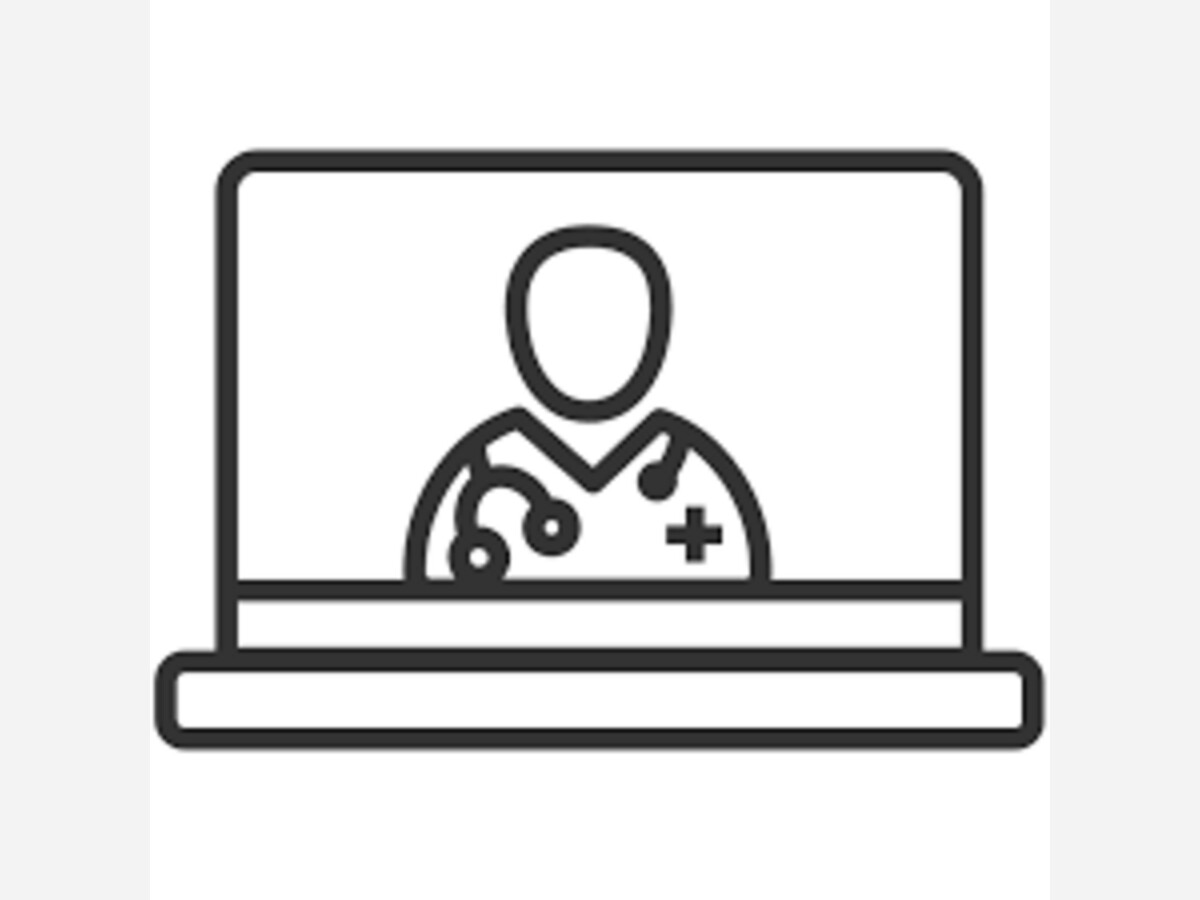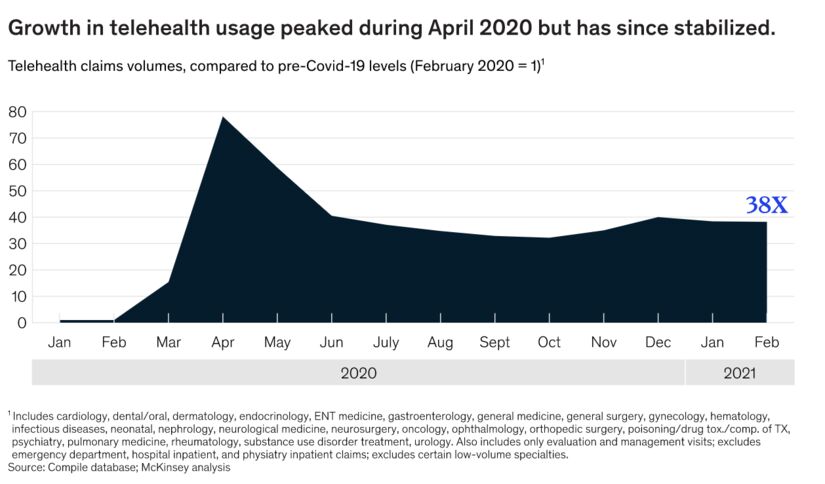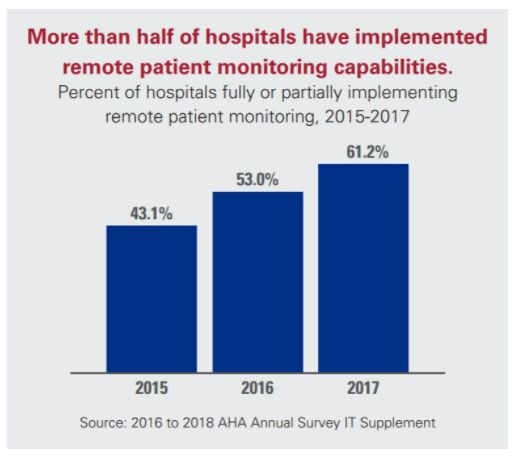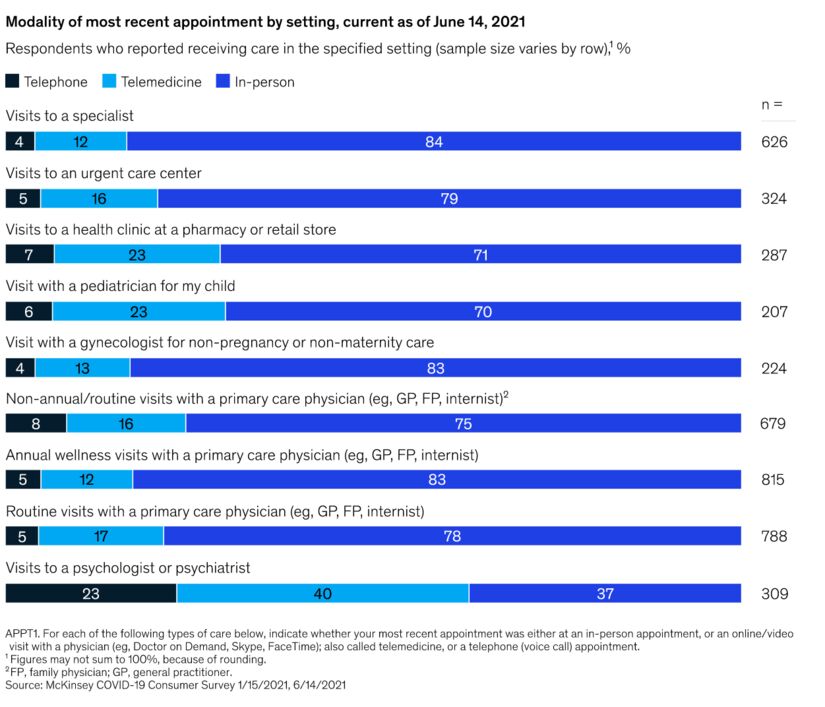Image

During the COVID-19 pandemic, in-person healthcare visits dropped 37%. (Weiner, et. al., 2021) Telehealth visits (virtual doctor appointments) increased to levels 38 times higher than pre-pandemic, indicating that many patients unwilling to attend in-person healthcare visits opted for online telehealth instead. Telehealth has also increased the number of patients restricted by age or disease seeking healthcare during the pandemic.

It is clear that the availability of telehealth has allowed for more at-risk individuals to receive adequate healthcare during the global public health crisis. Because of this, lawmakers and healthcare workers have moved to keep telehealth visits around for many years to come, post-pandemic. The CARES Act signed into law in March of 2020 ensures access and funding of telehealth visits and the reimbursement for visits lasts until 2025. (Wicklund, 2020)

Currently, 76% of U.S. Hospitals provide some form of telehealthcare. (AHA, 2021) Additionally, almost every state Medicaid program offers partial coverage for telehealth services, although Medicaid reimbursement lags behind private healthcare reimbursement levels.
The Telehealth Act expanded access to telehealth services and reimbursement across 40 states, including New Jersey. These 40 states govern reimbursement by insurers, while all 50 states allow for some form of telehealthcare. 6 states ensure that telehealth reimbursements equal that of regular in-person visits, as the cost for a telehealth appointment is equal to that of an in-person appointment on average. (Wicklund, 2020)
The New Jersey Department of Health (NJDOH) set an October 15th, 2021 deadline for any telehealth provider located out-of-state to register with the NJDOH or terminate their telehealthcare in the state of NJ. Those who continue to provide telehealthcare in NJ are now required to submit annual activity and encounter reports to the NJDOH including information on patients such as their race and ethnicity, diagnostic codes, evaluation codes, and the patient's form of payment.
In efforts to expand and ensure access to telehealth, the Nurse Licensure Compact (NLC) now allows New Jersey nurses who meet certain requirements to obtain a single license to practice in every state that participates in the program. Currently, 38 states have enacted NLC laws. NLC allows registered nurses (RNs), vocational nurses (VNs), and licensed practical nurses (LPNs) the ability to apply for a multistate license to work from their home state and in other member states. The enactment of NLC allows nurses an easier way to provide services through telehealth or in-person throughout the country beyond the end of the pandemic.
NLC participating state list can be found here.
Requirements for NLCs additional nationwide single license include the following: meet the license requirements for the provider's state of residency, pass the NCLEX-RN, NCLEX-PN, or predecessor exam, have a valid social security number, complete federal and state background checks, and have no felony convictions, providers that are not currently participating in an alternative discipline program like RAMP or PAP.
NLC license application information can be found here.
Acting NJ Attorney General Andrew J. Bruck stated, "during the COVID-19 pandemic we saw firsthand that having the tools and ability to mobilize qualified healthcare staff is critical during a public healthcare crisis."
There is some concern among patients about the cost of telehealth appointments, as on average they cost the same as in-person appointments, and depending on your healthcare provider (specifically private vs. federal healthcare) the reimbursement for telehealth appointments can vary greatly. However, overall medical costs actually decreased 15% from 2019 to 2020, but this decrease could be due to a general decrease in the number of people seeking healthcare. For this reason alone it is important that telehealth remain available to patients during a public health crisis like COVID-19, and that telehealth availability continue after the pandemic for those who have difficulty accessing in-person healthcare.
The figure below demonstrates the type of healthcare most commonly sought after through telehealth during the COVID-19 pandemic:

What are your opinions on the rising use and ubiquity of telehealth? Let us know in the comments below.
Sources:
Oleg Bestsennyy, Greg Gilbert, Alex Harris, and Jennifer Rost. Telehealth: A quarter-trillion-dollar post-COVID-19 reality? McKinsey & Company, 9 July 2021. https://www.mckinsey.com/industries/healthcare-systems-and-services/our…
Weiner JP, Bandeian S, Hatef E, Lans D, Liu A, Lemke KW. In-Person and Telehealth Ambulatory Contacts and Costs in a Large US Insured Cohort Before and During the COVID-19 Pandemic. JAMA Netw Open. 2021;4(3):e212618. doi:10.1001/jamanetworkopen.2021.2618
Daniel L. Fahey, Priya Kaulich & Lauren Petrin. Navigating New Jersey’s Telemedicine Business Registry. Epstein Becker Green, 14 September 2021. https://www.healthlawadvisor.com/2021/09/14/navigating-new-jerseys-telemedicine-business-registry/
Telemedicine and Telehealth Organization Registry, Health Facility Services, New Jersey Department of Health, https://dohlicensing.nj.gov/telehealthtelemedicine/.
Koonin LM, Hoots B, Tsang CA, et al. Trends in the Use of Telehealth During the Emergence of the COVID-19 Pandemic — United States, January–March 2020. MMWR Morb Mortal Wkly Rep 2020;69:1595–1599. DOI: http://dx.doi.org/10.15585/mmwr.mm6943a3
https://www.aha.org/factsheet/telehealth
Eric Wicklund. House to Debate Extending CARES Act Telehealth Coverage Indefinitely. mHealthIntelligence, 29 June 2020. https://mhealthintelligence.com/news/house-to-debate-extending-cares-act-telehealth-coverage-indefinitely
Eric Wicklund. CARES Act Expands Telehealth Coverage for Medicare, FQHCs and the VA. mHealthIntelligence, 30 March 2020. https://mhealthintelligence.com/news/cares-act-expands-telehealth-coverage-for-medicare-fqhcs-and-the-va
https://www.ncsbn.org/nurse-licensure-compact.htm